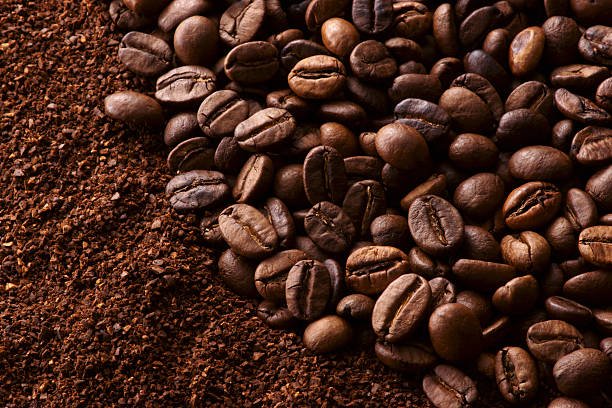Ground coffee beans are brewed to create coffee, a popular beverage. Around the world, people enjoy this complex and delicious beverage at different times of the day.

The process of brewing coffee has changed dramatically over time, providing an endless array of ways to bring out its delicious characteristics. These days, there are lots of methods for experiencing the entire range of flavors that coffee can provide. One unique way to enjoy coffee involves directly consuming coffee beans, setting it apart from other brewing methods.
Is Eating Coffee Safe?
Jeff Hong, a Registered Dietitian at Yanre Strength, explained that munching on a few roasted coffee beans can give a quick caffeine buzz. Especially to those who are not a regular coffee drinkers.
You can find coated coffee beans in many places, like dark chocolate-covered espresso beans. Which I love because I prefer dark chocolate and enjoy dark roasted coffee.
Eating coffee beans offers a small treat. While you might get some caffeine, most is released during brewing, so you won’t absorb much by eating the beans.
Try it out—you might discover a new favorite snack.
Is It Healthy To Eat Coffee Beans? Pros and Cons
Pros:
- Coffee contains high levels of antioxidants because it contains chlorogenic acids. These are part of a group of compounds called phenolic acids. These help fight oxidative stress and reduce inflammation.
- Green Arabica beans can contain up to 140–150mg/g of chlorogenic acid. Which is notably higher than the 80mg/g found in green tea.
- When coffee beans undergo roasting, they typically lose approximately 50–70% of these compounds. The extent of this depends on the degree of roasting.
These antioxidants play a crucial role in protecting against inflammation and cardiovascular diseases.
Therefore, it’s evident that consuming roasted coffee beans directly will offer a significantly higher amount of antioxidants. Compared to drinking a cup of brewed coffee is way more.
Coffee beans contain chlorogenic acids, which not only boost the antioxidant qualities of the bean but also improve the solubility of caffeine, making it easier for your body to absorb. The chemical caffeine itself has several health benefits, including a 50% lower incidence of mouth cancer. Caffeine also protects against cataracts, encourages hair development, helps detoxify the liver, and may even improve semen volume. Usually, a cup of coffee has about 50 calories, mostly from any additional milk. Still, there aren’t many calories in black coffee itself—usually only one or two per cup.
Cons:
Coffee beans contain acids and volatile compounds. The roasting process decreases the amounts od antiodident content. Some volatile compounds are neutralized while others, like derivatives of fatty acids, increase. This can lead to heartburn and other unwanted side effects.
If diluted coffee causes heartburn, it’s best to avoid consuming roasted coffee beans directly, as it may exacerbate the discomfort. Additionally, excessive consumption of coffee beans can result in high cholesterol, laxative effects, and other bodily discomforts.
Since roasted coffee beans can contain up to 6mg of caffeine each, it’s crucial to monitor your intake. Considering the recommended maximum caffeine intake for adults is 400mg per day. Eating roasted coffee beans in moderation can be beneficial, but it’s wise to seek medical advice if you have any concerns.
Conclusion:
Even if coffee beans can be eaten, it’s vital to weigh the advantages against any potential disadvantages. Caffeine and antioxidants included in coffee beans provide a rapid energy boost along with a variety of flavors. However, eating them straight should be done in moderation as it can cause adverse consequences like heartburn. As with any dietary decision, it’s advisable to consult a doctor if necessary and to consume coffee beans sensibly.






